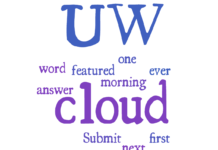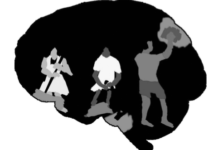So it’s true then, what they were saying on the train: Harry Potter has come to Waterloo.</p>
Harry Potter may soon be a more universal name among Waterloo students when Popular Potter, a new course offering, is added to the curriculum in spring 2016. Studying the literary phenomena, associate professor Neil Randall, a tenured English lecturer, will review and discuss the thematic intricacies of J.K. Rowling’s famous novels: the Harry Potter series.
Focusing on all seven novels, Randall hopes to discuss topics such as fandom studies, adaptation studies, popular culture theory, and literary intertexts. “[The goal is] to study a series of books that made a huge impact on many people over many years,” Randall said, adding that “A sub-goal is to interest people in the study of literature who might otherwise not have considered it.”
Proposing the Potter course to the department himself, Randall believes the content may involve some cherry-picking. With all seven novels being a requirement, there is a surplus of subjects that could be included in the syllabus. Still under construction, Randall is considering his options: “The major question will be how many different elements are possible in a single course with a significant amount of reading.”
Luckily for Randall, some precedents exist. Analyzing Harry Potter is a growing movement among literary scholars, as many institutions have begun offering similar courses. Gabrielle Ceraldi, an assistant professor from the department of English and writing studies at Western University, is familiar with initiating a Potter course.
Titled “The Many Faces of Harry Potter,” Ceraldi introduced a Potter course to the syllabus in 2013, with the goal of attracting students from all studies to participate in English courses. She believes that a course on such a mainstream series is beneficial to the students: “What many of these students value in the course is an opportunity to engage in a different style of thinking from what is required of them in their home faculties.”
Ceraldi’s course discusses many genres, including detective fiction, gothic fiction, historical fiction, and melodrama. Presently the curriculum discusses all seven novels, as well as additional texts.
Despite the 200 available seats at Western’s initial offering, students at Waterloo may have a tougher time getting into Popular Potter, as Randall expects that only 40 to 50 seats may be available. However, he believes this cap could potentially be higher: “Much will depend on the availability of and budget for grading assistants.”
Maddison Kampstra, a third-year student studying English literature, has only ever read the first two novels of the series. However, she believes that such a course would not be difficult for students who have limited knowledge of the series, and that the students may still enjoy it: “It will give those who are not familiar the chance to learn and then be able to create their own opinions on the literature.”
Ceraldi stated that she often warns her students who have not read the series “that the course will be time-consuming.” Randall, on the other hand, agrees with Kampstra, adding that “If they’re coming in having only seen the movies, they will certainly be challenged not to be biased by the movies.”
This raises a question on the integrity of students’ study habits: will students simply watch the films and ignore their readings?
Randall expressed that the films are both beneficial and a liability to the study process. When asked if they were an asset, he said: “Yes in the sense that they’ll know the stories, no in the sense that their own interpretations have already been overly decided.… Reading the stories is a vastly different experience from watching them.”
Ceraldi believes that many of her students prefer the novels to the films. She says that fans of the books are not always impressed with the movies: “I have an online discussion forum as part of the course and the students there will often lament the ways in which the films fall short of the novels.”
Aleesha Jones-Blue, a social development studies major, hopes that students do not ignore the books: “As someone who has both read the novels and seen the movies, I think it may hinder students to just see the movies.”
Ultimately, time will have to tell. Until then, Randall is looking forward to instructing the course: “I’m excited about the course, and particularly about engaging early undergrads in novels that, for many, have meant so much to them,” adding that “I thoroughly enjoy re-reading them myself, something I’ve done many times.”
In the meantime, as students eagerly await more news on the course, students can ponder Dumbledore’s famous opening: “Nitwit! Blubber! Oddment! Tweak!”































